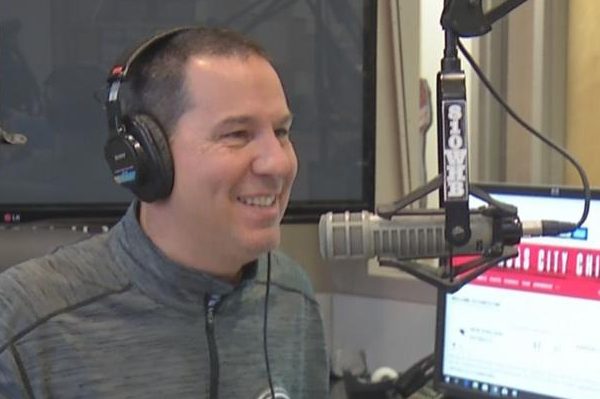What is a podcast? It seems like a simple question with an easy answer, but not so fast my friend. Should a one hour show that aired live on the radio and then posted on the station’s website be considered a podcast? Or should only programs created and produced exclusivly for download be considered podcasts? Do they have to be downloadable to be considered a podcast? So like I said, not such an easy answer.
What we do know is that podcasts are hot. Podcast Insights reports that there are currently more than 750,000 podcasts. A recent Nielsen audio report detailed that nearly 50% of 6+ listeners in Washington, DC and Seattle-Tacoma have ever listened to a podcast. Podcast Insights says that 51% of the US Population has listened to a podcast and that 49% of podcast listening is done at home, while 22% of listening is done in the car.

So back to my original question–what is a podcast? Merriam Webster defines a podcast as, “a program (as of music or talk) made available in digital format for automatic download over the Internet.” Reading that tells me that any program, whether it aired originally on the radio or is an original production, can be considered a podcast.
Let’s see what some of the thought leaders in the sports radio/sports audio world think is and is not a podcast:
Pete Gianesini, Senior Director, Digital Audio Programming, ESPN:
“Over the years we’ve gone around the block on this a few times. Without having come to a formal resolution, at the end of the day, anything that is a full show or an hour from a longer show, whether original or repurposed from radio or TV, we call a podcast. A standalone interview pulled from a show or anything shorter than that we call a clip. On our podcast page on ESPN.com we categorize our titles as ‘ESPN Originals’, ‘ESPN TV’, and ‘ESPN Radio.‘

“In the ESPN app, we have many more categories but they are divided by genre (NBA) rather than the platform it originates from. But even that setup I’d call more of a guideline more than a hard rule. It evolves over time…If someone has a great idea how to rigidly categorize something like that, I’m all ears. I actually think if we are making content that is hard to categorize then we’re doing something right with the format.”
Rick Cummings, President of Programming, Emmis Communications:
“At Emmis, a couple things guide our efforts in podcast:
- A podcast provides the convenience of consuming when desired. So most of our high profile morning shows are available via podcast ‘same day,’ and in multiple forms: long form; hourly and feature segments.
- We have tried and been largely unsuccessful at creating ‘podcast only’ material (instead of repurposed over the air content). We believe it’s a different skillset, having more in common with making a good film than a good radio show.

For that and many other reasons, we have completed a round of funding for Los Angeles podcast studio Sound That BRANDS. STB is a talented group of storytellers who produce podcasts that tell a brand’s unique story or tell stories reflective of a brand’s qualities. At STB, the motto is “be the content, not the interruption.”
Mike Thomas, National Spoken Word and Podcast Brand Manager, Beasley Media Group

“We consider time shifted audio, like an hour of Mike Missanelli’s Show, to be a podcast just like we consider original content like “Sports Hub Grub” to be a podcast. Any audio that is available when it’s convenient for the listener to consume it, is a podcast. Apple and Google have unified in calling them podcasts and we are in agreement.”
Suzanne Grimes, President, Westwood One and EVP/Marketing for Cumulus Media
“A podcast is original audio content created for the purpose of listening across a multitude of digital platforms such as Apple Podcasts, Spotify, Google Podcasts, Stitcher, TuneIn, etc. It is audio content created to be consumed as a podcast; it can be host driven, scripted, investigative journalism, news and beyond.

On-demand audio is content that has been repurposed for digital audio consumption so a consumer can listen on their own time. This could be broadcast radio or TV content that has been edited to be an on-demand digital audio file.“
As you can see, with a category so vaguely defined as podcasts, major radio operations have differing opinions as to what is and what is not a podcast. So what does the ratings company, Nielsen, think of this question?
While Nielsen doesn’t currently differentiate between repurposed audio and an original podcast, the company has found a way to credit a podcast to a station’s ratings for PPM (Portable People Meter) markets. It has to meet the following criteria:
- The radio station broadcast the podcast audio on-air, and
- The podcast includes the station’s PPM codes, and
- The podcast is long enough to earn a Quarter Hour of credit, and
- The Panelist listened to the podcast within a day of the original broadcast.
The PPM system discards podcast listening that does not meet these criteria.
I found this to be incredibly interesting. So it clearly makes sense for stations to drive listeners to download radio shows and listen to them as opposed to spending a ton of time creating and promoting original podcasts.

In conclusion, as podcasts and on-demand content continues to grow, the measurements, metrics and standards will become better defined in order to better serve the audio companies and their sponsors.
So what’s a podcast? What isn’t a podcast? Depends who you ask.
Matt Fishman is a former columnist for BSM. The current PD of ESPN Cleveland has a lengthy resume in sports radio programming. His career stops include SiriusXM, 670 The Score in Chicago, and 610 Sports in Kansas City. You can follow him on Twitter @FatMishman20 or you can email him at FishmanSolutions@gmail.com.







